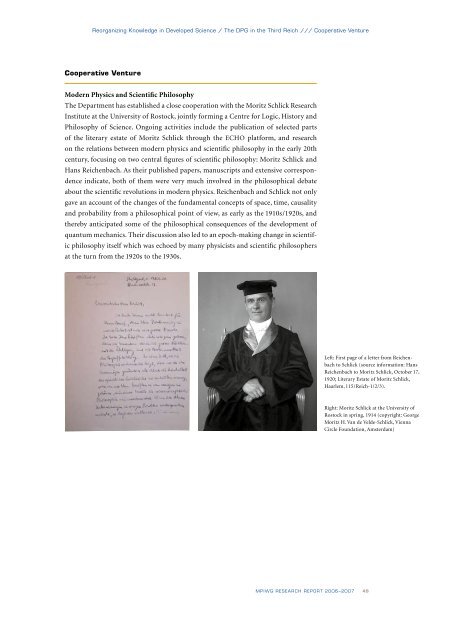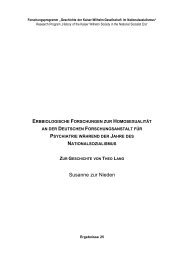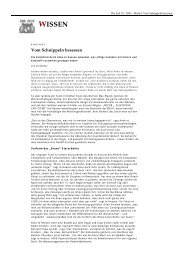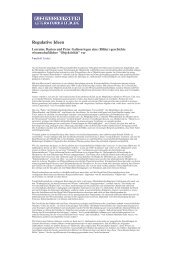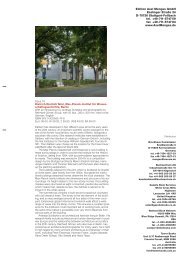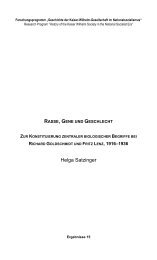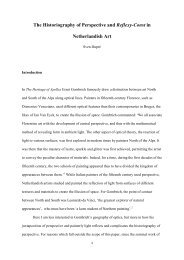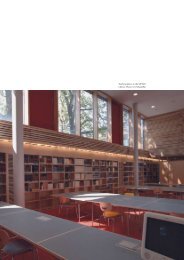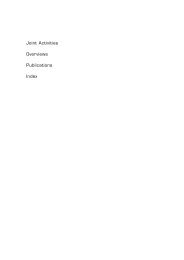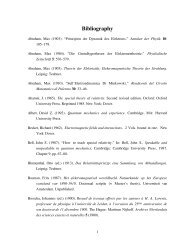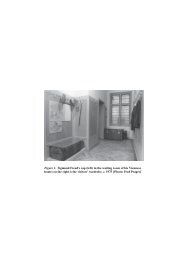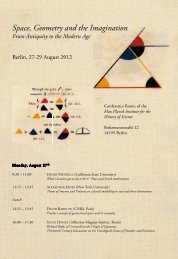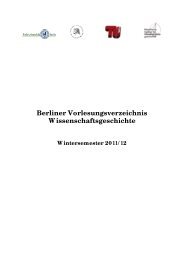Max Planck Institute for the History of Science
Max Planck Institute for the History of Science
Max Planck Institute for the History of Science
You also want an ePaper? Increase the reach of your titles
YUMPU automatically turns print PDFs into web optimized ePapers that Google loves.
Reorganizing Knowledge in Developed science / <strong>the</strong> DPG in <strong>the</strong> third Reich /// cooperative Venture<br />
Cooperative Venture<br />
Modern Physics and Scientific Philosophy<br />
The Department has established a close cooperation with <strong>the</strong> Moritz Schlick Research<br />
<strong>Institute</strong> at <strong>the</strong> University <strong>of</strong> Rostock, jointly <strong>for</strong>ming a Centre <strong>for</strong> Logic, <strong>History</strong> and<br />
Philosophy <strong>of</strong> <strong>Science</strong>. Ongoing activities include <strong>the</strong> publication <strong>of</strong> selected parts<br />
<strong>of</strong> <strong>the</strong> literary estate <strong>of</strong> Moritz Schlick through <strong>the</strong> ECHO plat<strong>for</strong>m, and research<br />
on <strong>the</strong> relations between modern physics and scientific philosophy in <strong>the</strong> early 20th<br />
century, focusing on two central figures <strong>of</strong> scientific philosophy: Moritz Schlick and<br />
Hans Reichenbach. As <strong>the</strong>ir published papers, manuscripts and extensive correspon-<br />
dence indicate, both <strong>of</strong> <strong>the</strong>m were very much involved in <strong>the</strong> philosophical debate<br />
about <strong>the</strong> scientific revolutions in modern physics. Reichenbach and Schlick not only<br />
gave an account <strong>of</strong> <strong>the</strong> changes <strong>of</strong> <strong>the</strong> fundamental concepts <strong>of</strong> space, time, causality<br />
and probability from a philosophical point <strong>of</strong> view, as early as <strong>the</strong> 1910s/1920s, and<br />
<strong>the</strong>reby anticipated some <strong>of</strong> <strong>the</strong> philosophical consequences <strong>of</strong> <strong>the</strong> development <strong>of</strong><br />
quantum mechanics. Their discussion also led to an epoch-making change in scientif-<br />
ic philosophy itself which was echoed by many physicists and scientific philosophers<br />
at <strong>the</strong> turn from <strong>the</strong> 1920s to <strong>the</strong> 1930s.<br />
MPIWG ReseaRch RePoRt 2006– 2007 49<br />
Left: First page <strong>of</strong> a letter from Reichenbach<br />
to Schlick (source in<strong>for</strong>mation: Hans<br />
Reichenbach to Moritz Schlick, October 17,<br />
1920; Literary Estate <strong>of</strong> Moritz Schlick,<br />
Haarlem, 115/Reich-1/2/3).<br />
Right: Moritz Schlick at <strong>the</strong> University <strong>of</strong><br />
Rostock in spring, 1914 (copyright: George<br />
Moritz H. Van de Velde-Schlick, Vienna<br />
Circle Foundation, Amsterdam)


